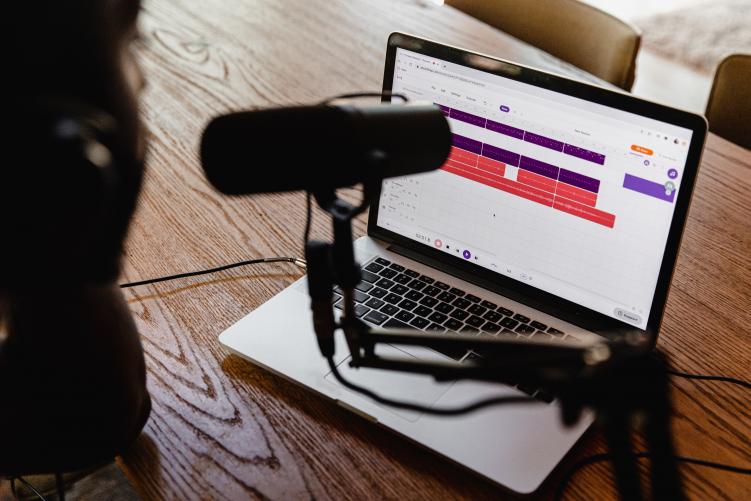Introduction
Sooner or later, every musician wants to record their music. It’s only natural – and it’s also one of the best ways to improve as a musician. Recording and finishing songs will make you play and compose better! What’s great about modern recording technology is that there has never been a better time for a musician to get into recording. For relatively little money, a home musician can have equipment and technology that would have blown the mind of the producers, engineers, and musicians behind some of the biggest selling recordings of all time.
However, equipment alone can’t make the magic happen! Every musician needs to do some planning and preparation before doing any recording if they want the best results. You can always visit Multitrackhq for more great info on a recording!
Getting a few simple things right can make your recording process a lot easier, no matter whether you’re using a hardware recorder, or a software DAW (such as Audacity or GarageBand for windows)!
Know Your Parts
Recording your music is a serious affair – you wouldn’t be doing it unless you cared a lot about your music. So, you naturally want to do your best when recording! One of the most essential things a musician can do when recording is to know their parts intimately. It’s not enough to only have a rough idea of what to play, and expect to pick it up when recording. You should know every single note of every single part perfectly, and be able to play them all perfectly too.
This is critical – if you don’t know the music well enough, you can’t possibly get a good performance!
Practice Makes Perfect
The best way to ensure you’re ready for recording is to practice all of your parts, over and over again. Play with a metronome, and start slowly – you want your timing to be as precise as possible, so using a metronome is essential! When the time comes to record, you should be able to play everything at full speed with no trickery involved – it’s the only way to be sure that your performance is awesome, and that you’ve given yourself a good foundation for a top-tier recording.
Getting The Gain Right
Gain is one of the most important things you have to manage when recording. If you get the gain levels right, so much else will be a lot easier. This means ensuring that whatever instrument you’re recording is being picked up loud and clear so that they can all be properly mixed later. It’s essential that you don’t clip your signal. This means that the sound should never be so loud that it distorts the waveform being recorded. Usually, no matter what sort of recorder you’re using, there’s some sort of meter to show you the signal level. A red signal is clipping and needs to be turned down, or it will distort when you record it. Typically, it’s best to stay in the green, with 6db as a good point to aim for.
So, make sure your signal is neither too loud to record cleanly, or too quiet to provide a good signal for your recorder! This will require a bit of practice and adjustment – but keep tweaking until you get it just right, and the recording, mixing, and mastering of your music will be made so much easier!
Learn The Equipment
Take some time to learn how to use whatever equipment you’ll be using to record with. Whether you’re using hardware or software, you’ll always save yourself a lot of headaches by learning how things work, and how to set things up properly. You don’t want to have to get the instruction manual out while you’re trying to record your sick solo!
Spending a little bit of time learning how your equipment works always pays off in the long run, even though it’s not as fun as the actual music side of recording! And if you’re recording other people, that time you spent learning will save time not just for you but for everyone else!
Get The Best Performance
If you’re recording a 5-minute song, it doesn’t mean that you should spend only 5 minutes recording it! The best recordings are done in meticulous detail, with the musicians and engineers taking their time until the song is the best it can be. This isn’t cheating – it’s all about making a piece of art that will last forever! You can do as many takes as you need to get the best performance, so don’t settle for a second-rate one. This is why it’s so important to really know what you’re recording – so you can get the absolute best performance in the least amount of time!


Introduction
Sooner or later, every musician wants to record their music. It’s only natural – and it’s also one of the best ways to improve as a musician. Recording and finishing songs will make you play and compose better! What’s great about modern recording technology is that there has never been a better time for a musician to get into recording. For relatively little money, a home musician can have equipment and technology that would have blown the mind of the producers, engineers, and musicians behind some of the biggest selling recordings of all time.
However, equipment alone can’t make the magic happen! Every musician needs to do some planning and preparation before doing any recording if they want the best results. You can always visit Multitrackhq for more great info on a recording!
Getting a few simple things right can make your recording process a lot easier, no matter whether you’re using a hardware recorder, or a software DAW (such as Audacity or GarageBand for windows)!
Know Your Parts
Recording your music is a serious affair – you wouldn’t be doing it unless you cared a lot about your music. So, you naturally want to do your best when recording! One of the most essential things a musician can do when recording is to know their parts intimately. It’s not enough to only have a rough idea of what to play, and expect to pick it up when recording. You should know every single note of every single part perfectly, and be able to play them all perfectly too.
This is critical – if you don’t know the music well enough, you can’t possibly get a good performance!
Practice Makes Perfect
The best way to ensure you’re ready for recording is to practice all of your parts, over and over again. Play with a metronome, and start slowly – you want your timing to be as precise as possible, so using a metronome is essential! When the time comes to record, you should be able to play everything at full speed with no trickery involved – it’s the only way to be sure that your performance is awesome, and that you’ve given yourself a good foundation for a top-tier recording.
Getting The Gain Right
Gain is one of the most important things you have to manage when recording. If you get the gain levels right, so much else will be a lot easier. This means ensuring that whatever instrument you’re recording is being picked up loud and clear so that they can all be properly mixed later. It’s essential that you don’t clip your signal. This means that the sound should never be so loud that it distorts the waveform being recorded. Usually, no matter what sort of recorder you’re using, there’s some sort of meter to show you the signal level. A red signal is clipping and needs to be turned down, or it will distort when you record it. Typically, it’s best to stay in the green, with 6db as a good point to aim for.
So, make sure your signal is neither too loud to record cleanly, or too quiet to provide a good signal for your recorder! This will require a bit of practice and adjustment – but keep tweaking until you get it just right, and the recording, mixing, and mastering of your music will be made so much easier!
Learn The Equipment
Take some time to learn how to use whatever equipment you’ll be using to record with. Whether you’re using hardware or software, you’ll always save yourself a lot of headaches by learning how things work, and how to set things up properly. You don’t want to have to get the instruction manual out while you’re trying to record your sick solo!
Spending a little bit of time learning how your equipment works always pays off in the long run, even though it’s not as fun as the actual music side of recording! And if you’re recording other people, that time you spent learning will save time not just for you but for everyone else!
Get The Best Performance
If you’re recording a 5-minute song, it doesn’t mean that you should spend only 5 minutes recording it! The best recordings are done in meticulous detail, with the musicians and engineers taking their time until the song is the best it can be. This isn’t cheating – it’s all about making a piece of art that will last forever! You can do as many takes as you need to get the best performance, so don’t settle for a second-rate one. This is why it’s so important to really know what you’re recording – so you can get the absolute best performance in the least amount of time!
Related Content: